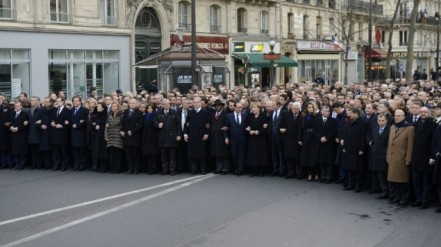There were vehicle curfews; they had to be off the streets by 9 PM.
Grocery stores were emptied. “Everybody is buying bread, milk, and eggs.” What’s that about? One wag suggested French toast is apocalyptic food.
Generators were primed and gasoline containers full.
The mayor of New York had spoken of “the storm of a life-time.” He had ordered his road maintenance crews to be alert and “not be cheapskates” in their plowing or application of salt. He solemnly warned the public that not obeying his curfew orders would be “to commit a crime.” Gasp!
Here is a short summary of all the dire warnings. Note especially Mayor Bill de Blasio’s profound utterance, “People have to make smart decisions from this point on.”
But, him? Not so much. For, oops. The meteorologists had got it wrong. The Big Apple was spared. It turns out the storm missed NYC. Boston and points north got hammered, a bit. But, not the NYC area.
Weather forecasting is not my concern. It is not just a science, but also a mysterious art. Those folks do not read tea-leaves, but not far from it. What they do read is a mess of data which has to be interpreted.
There’s the rub.
Anyone involved in any discipline the essence of which is interpretation (reading the Bible, say, or the Quran, or the US Constitution) knows how deeply influenced the results are by the guiding principles and even, to be frank, the presuppositions if not outright prejudices of the interpreter.
No surprise here is allowed in a post-Einstein world. Relativity teaches that the observer in some central way creates what is observed.
And so it is worth noting that we are surrounded by interpretation voices. Every pundit, talking head, op ed writer, and even (alas) journalist, pours forth as “the-way-things-are” what in truth is “the-way-I-think-things-are” or, worse, “the-way-I-think-things-should-be.” The danger in this reality of so much contemporary discourse, let me be clear (to quote President Obama, who rarely is,) is not the voice, but the ear; not the speaker, but the listener.
Mayor de Blasio (and many others) heard the opinions of the weather forecasters, took it as predetermined fact, and caused if not panic at least a wild over-reaction.
To be fair to him and the others, of course, requires that we admit that only now do we know that it was an over-reaction. Had they not done what they did and said what they said and had the storm been what is was feared it would be, they would face excoriation this morning.
My focus in this post is, thus, not on them, the speakers of doom and gloom, but the hearers, us. And I am not interested in criticizing the responses either. My interest is on pointing out a phenomenon that worries me. Let’s call it apocalyptic fascination.
Not every challenge, not every obstacle, not every trial and tribulation, need signal the end of the world as we know it. After all, part of the world as we know it is our own courage, our own resilience, our capacity to discern and our determination to take difficulty in stride, to fight and overcome, to maintain and preserve, to face up to life when it is tough and to prevail.
The apocalypse? Balderdash.
